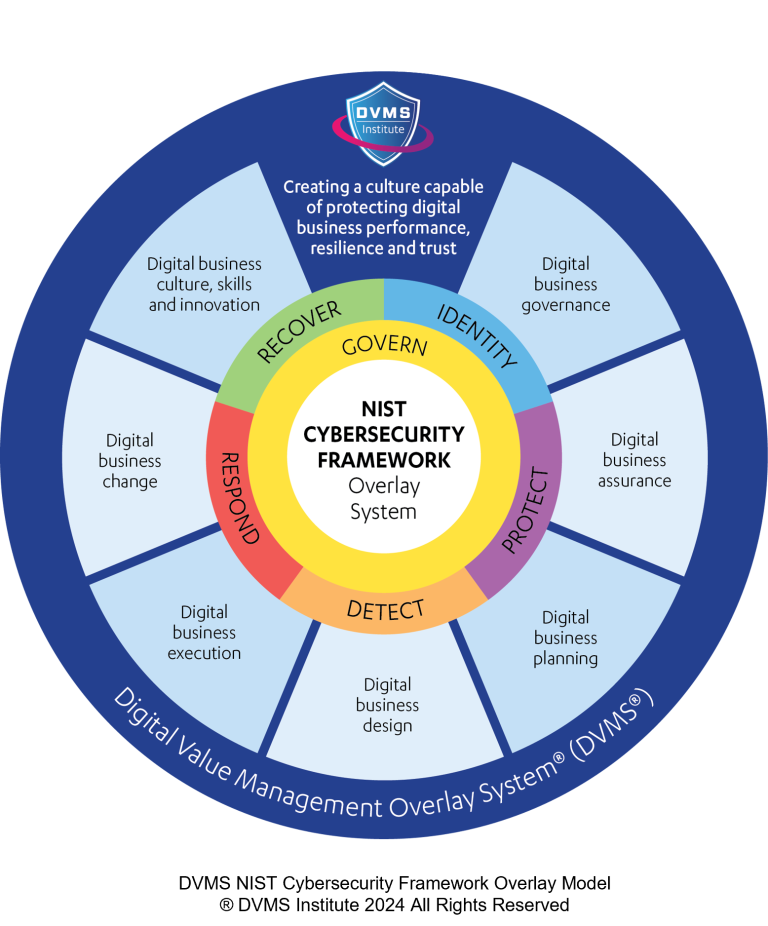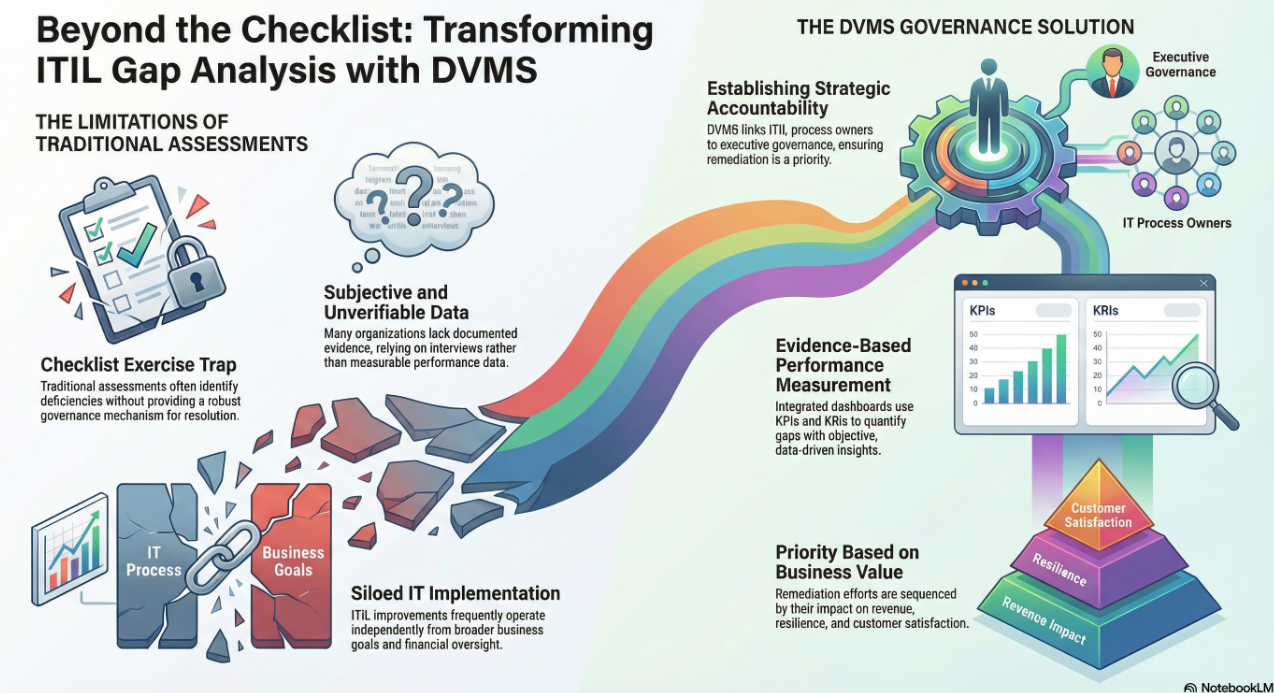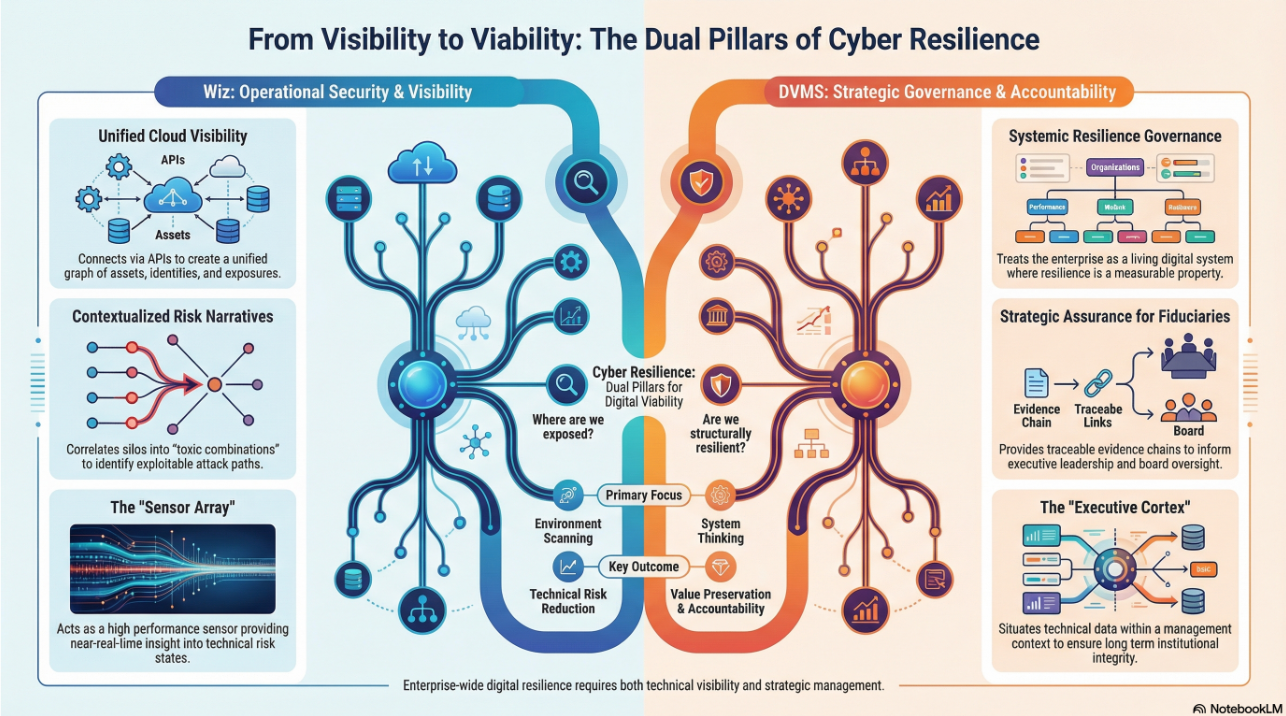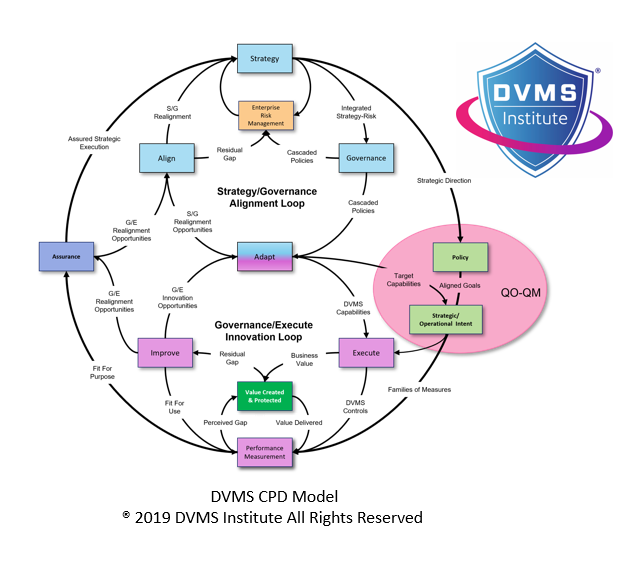The Persistent Challenge of Cybersecurity Risk Management for Governments and Businesses
Rick Lemieux – Co-Founder and Chief Product Officer of the DVMS Institute
The global landscape is increasingly punctuated by high-profile cyberattacks, exposing companies and governments’ persistent challenges in managing cyber risks. While technological advancements offer potential solutions, a confluence of factors hinders effective risk management.
A fundamental issue lies in the perception of cybersecurity as a cost center rather than an investment. Many organizations view security expenditures as detracting from core business functions or as a necessary evil. This short-sighted perspective often leads to underinvestment in critical security measures, leaving organizations vulnerable to exploitation. Moreover, the intangible nature of cybersecurity makes it challenging to quantify its value, hindering the allocation of sufficient resources.
The complexity of modern IT environments exacerbates the problem. The proliferation of interconnected systems, cloud services, and the internet of Things (IoT) creates an expansive attack surface. Organizations need help to maintain visibility and control over their entire digital ecosystem. The rapid pace of technological change further complicates the issue, as new vulnerabilities emerge faster than they can be addressed.
A significant obstacle to effective cyber risk management is the need for more skilled cybersecurity professionals. The demand for experts far outstrips supply, leaving many organizations with inadequate resources to protect themselves—the challenges of recruiting and retaining skilled cybersecurity personnel compound this talent gap.
Additionally, the evolving nature of cyber threats poses a constant challenge. Cybercriminals are becoming increasingly sophisticated, employing advanced techniques like ransomware, supply chain attacks, and social engineering. These threats require sophisticated defense mechanisms, which can be costly and challenging to implement.
Furthermore, cultural factors can contribute to the failure to manage cyber risks. A culture of complacency or risk aversion can hinder proactive security measures. Employees may neglect security best practices, such as solid password hygiene or vigilance against phishing attacks. Siloed organizational structures can also impede effective risk management, as different departments may operate in isolation without sharing information about threats or vulnerabilities.
Governments, too, face significant challenges in managing cyber risks. The vastness of critical infrastructure, the complexity of geopolitical relations, and the constant evolution of threats make cybersecurity a daunting task. Moreover, balancing national security interests with civil liberties can create dilemmas in developing effective cybersecurity policies.
Addressing the cyber risk challenge requires a multi-faceted approach. It involves increasing investments in cybersecurity, cultivating a strong security culture, fostering international cooperation, and developing innovative technologies. By recognizing the critical importance of cybersecurity and taking proactive steps to manage risks, organizations and governments can improve their resilience to cyberattacks.
Ultimately, the success of cyber risk management depends on a holistic approach that encompasses People, Processes, Technology, Organizational Structures (i.e., silos), Leadership and Culture. It requires a long-term commitment to building a robust security posture, adapting to the ever-changing threat landscape, and fostering collaboration across organizations and sectors.
About the Author

Rick Lemieux
Co-Founder and Chief Product Officer of the DVMS Institute
The DVMS Institute teaches organizations of any size, scale, or complexity an affordable approach to mitigating cyber risk to protect digital business performance, resilience, and trust.
Rick has 40+ years of passion and experience creating solutions to give organizations a competitive edge in their service markets. In 2015, Rick was identified as one of the top five IT Entrepreneurs in the State of Rhode Island by the TECH 10 awards for developing innovative training and mentoring solutions for boards, senior executives, and operational stakeholders.
® DVMS Institute 2024 All Rights Reserved




